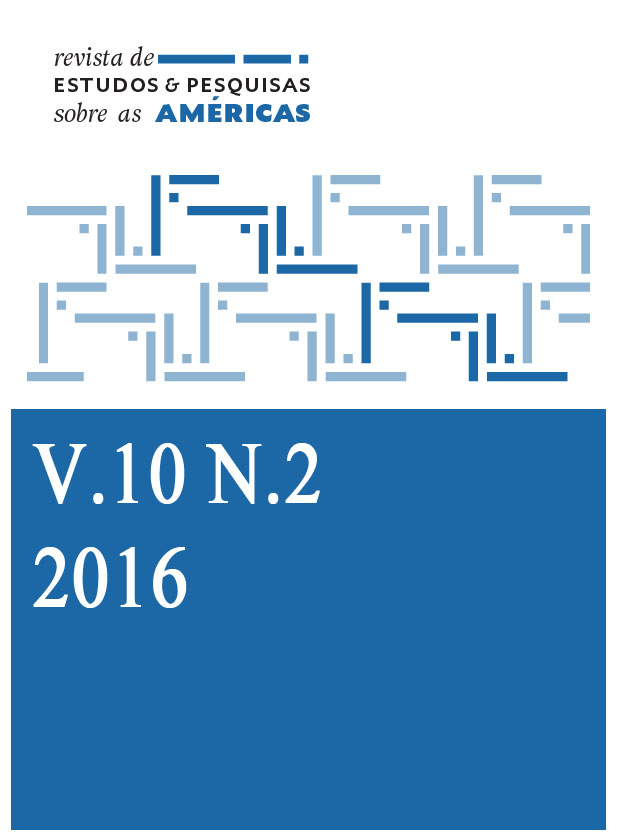El Caribe Insular: entre la realidad y la subversión epistémica
Abstract
El Caribe Insular: entre la realidad y la subversión epistémica
Resumen
La realidad del Caribe, su ser real, su onto, dado en el complejo proceso de su historia y su estar siendo, genera formas, modos de aprehensión, conceptos que distan de aquellos establecidos por el pensamiento occidental. A lo largo del siglo XX se han formulado nociones como negritud, choteo, creolization, frontera imperial, condenados de la tierra, discurso antillano, antillanidad, poética de la relación, transculturación, y conceptos-metáforas como “caliban””“, los cuales constituyen una expresión teórico-filosófica de la realidad, de la existencia caribeña. Un caso notable tratado en el texto es el surgimiento del Grupo Nuevo Mundo (New World Group), el cual ante la creación de nuevos Estados nación tras la independencia de la corona inglesa constatan su insatisfacción por el saber y las herramientas teóricas metropolitanas vigentes y tras considerar que “pensaban para actuar” propusieron desarrollar un “pensamiento independiente” (Independent thought) y a enunciar nociones como ‘decolonización epistémica’, ‘soberanía epistémica’, ‘caribeñización epistémica’ o a estudiar al Caribe como un sistema de plantación. La subversión epistémica llegaba esta vez en el Caribe anglófono de la mano de activos intelectuales, quienes con finalidad práctica y compromiso con su mundo, pensaban para transformar.
Palabras clave: Caribe, decolonización epistémica, Grupo Nuevo Mundo, Pensamiento crítico
O Caribe Insular: entre a realidade e a subversão epistêmica
Resumo
A realidade do Caribe, o seu verdadeiro eu, seu onto, dado o complexo processo de sua história e de seu "estar sendo", gera formas, modos de apreensão, conceitos que estão longe dos estabelecidos pelo pensamento ocidental. Ao longo do século XX tem-se formulado noções como negritude, choteo, crioulização, fronteira imperial, condenados da terra, discurso antilhano, antilhanidade, poética da relação, aculturação e conceitos-metáforas como "Caliban" - que constituem uma expressão teórica e filosófica da realidade, da existência caribenha. Um caso notável discutido no texto é o surgimento do Grupo Novo Mundo (New World Group), que ante a criação de novos estados-nação após a independência da coroa Inglesa, constata sua insatisfação com o conhecimento e as ferramentas teóricas metropolitanas vigentes e depois de considerar que "pensavam para agir", propuseram o desenvolvimento de um "pensamento independente" e a articulação de noções como 'descolonização epistêmica', 'soberania epistêmica', 'Caribenização epistêmica' ou estudar o Caribe como um sistema de plantation. A subversão epistêmica do Caribe anglófono se deu por meio de intelectuais ativos, aqueles que, com propósito prático e compromisso com seu mundo, pensavam para transformar.
Palavra chaves: Caribe, descolonização epistêmica, Grupo Novo Mundo, Pensamento Crítico
Insular Caribbean: Between reality and epistemological subversion
Abstract
The reality of the Caribbean ”“ it’s true, it’s ontology -, because of the complex historical process and it's “being”, generated forms, seizure modes and concepts that are far from those established by Western thought. Throughout the twentieth century, notions such as blackness, “choteo”, creolization, imperial border, wretched of the Earth, Antillean speech, “antilhanidade”, poetic of relationships, acculturation and metaphoric concepts as “Caliban”, has been formulated and became constitutive of a theoretical e philosophical expression of Caribbean existence. A notable case discussed in this article is the emergence of the New World Group, that, against the creation of new Nation-states after the independence from the English Empire, shows it’s dissatisfaction with the current metropolitan knowledge and theoretical approaches. Afterwards, considering that they should ‘think to act’, they proposed the development of an ‘independent thinking’ and the articulation of notions such as ‘epistemic decolonization’, ‘epistemic sovereignty’, ‘Caribbean epistemology’ or the study of Caribbean as a plantation system. The epistemic subversion of the English-speaking Caribbean happened through active intellectuals, those with practical purpose and commitment to their world, thought to make a difference.
Keywords: Caribbean, epistemic decolonization, New World Group, Critical Thinking
Downloads
Downloads
Published
How to Cite
Issue
Section
License
The published material is the property of the Journal, and may be reproduced in whole or in part with indication of the source.
Copyright: Authors will be responsible for obtaining the copyright of the material used. Authors who publish in this journal agree to the following terms:
a)Authors retain the copyright and grant the journal the right of first publication, with the work simultaneously licensed under
the Creative Commons Attribution License which allows the sharing of work with acknowledgment of authorship and initial publication in this journal.
b) Authors are authorized to take additional contracts separately, for non-exclusive distribution of the version of the work published in this journal (eg, publish in institutional repository or as a book chapter), with acknowledgment of authorship and initial publication in this journal.
c) Authors are allowed and encouraged to publish and distribute their work online (eg in institutional repositories or on their personal page) at any point before or during the editorial process, as this can generate productive changes as well as increase the impact and the citation of the published work (See The Effect of Free Access).
















